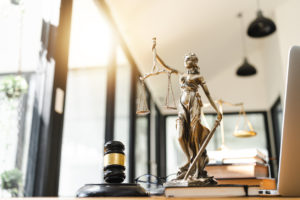
Vicarious liability occurs when one party bears liability for the misconduct of another party. In personal injury law, this happens more than you might imagine. Understanding vicarious liability can help you in many situations. If the original defendant is uninsured and cannot pay a judgment, for example, you might need to find a second defendant who bears vicarious liability for the acts of the first defendant.
Employer Liability

“Respondeat superior” is a fancy Latin term meaning “let the master answer.” It is a time-honored legal concept that survives today when courts hold employers liable for damages arising from the misconduct of their employees. When this happens, the employer is liable even if they committed no misconduct themselves.
Since an employee is an employer’s agent, the employer can bear liability for the employee’s misconduct if the employee acted within the “scope of employment” at the time of the incident. Some examples:
- A bar bouncer unjustly assaults a customer. The bar might bear liability even if they performed a thorough background check of the bouncer before hiring them.
- A company employee, delivering packages for their employer, runs another motorist off the road in an act of “road rage.” The employer probably does not bear liability since the employee seemed to be acting outside their scope of employment at the time of the accident. Nevertheless, this case could go either way.
- The same delivery driver stops at a bar and beats another customer in a drunken brawl. The employer would not bear liability because the brawl was outside the employee’s scope of employment.
Companies facing vicarious liability generally carry business insurance that will pay some or all of a personal injury claim.
Independent Contractors
The question of the difference between employees and independent contractors frequently arises in truck accident claims. Since most truck drivers are independent contractors, not employees, trucking companies are usually not liable for truck driver negligence. They can, however, bear liability for their own negligence (by hiring an incompetent truck driver, for example).
Whether a defendant is an employee or an independent contractor doesn’t depend on what the company that hired them calls them. They can call them independent contractors, but if they treat them like employees, a court can still hold them liable.
Ultimately, a court will decide if a defendant is an employee or an independent contractor. The primary distinction is that an independent contractor acts with more independence than an employee. A trucker might own their own truck, for example, or lease it from a third party.
“Dangerous Instrumentality”
A “dangerous instrumentality” is an object such as a car or a gun. The owner of a dangerous instrumentality is liable for any harm that occurs because the owner allowed someone else to use it. If you let someone borrow your car, for example, and they cause a DUI accident, you might bear liability. By contrast, you will not bear liability if someone steals your car and crashes it during a police chase because the thief did not have your permission to drive the car.
Florida’s Dram Shop Law
Florida holds alcohol vendors liable for damages caused by serving alcohol to a “habitually addicted” person or to a minor (under 21). Suppose, for example, that a nightclub serves beer to a minor, who causes a DUI later than night. Even if the minor cannot pay damages, the injured person can sue the alcohol vendor.
Parental Liability
Parents can sometimes bear liability for the consequences if their minor child intentionally destroys or steals property. The parent must live with the child to bear liability.
Product Liability
Under Florida product liability law, when you suffer injury due to a defective and unreasonably dangerous product, you can sue anyone in the product’s chain of distribution. That means you can sue a retailer selling a product with a manufacturing defect, even though the retailer did not manufacture it. Essentially, the distributor functions as the insurer or the product’s safety.
Civil Conspiracy
Most people think of conspiracies in terms of criminal acts. In a civil conspiracy claim, however, you sue for money damages. That doesn’t preclude a simultaneous criminal charge. Suppose that two or more people agree to perform an illegal act. All parties to the agreement are liable for civil conspiracy the moment that any of them takes an overt step (buying a gun, for example) toward the execution of the conspiracy.
Schedule a Free Consultation With a Clearwater Personal Injury Lawyer
If you need help with your injury case or you want to learn more information, please contact our personal injury law firm Roman Austin Car Accident and Personal Injury Lawyers at (727) 787-2500 or visit the nearest location to schedule a free case evaluation today.

